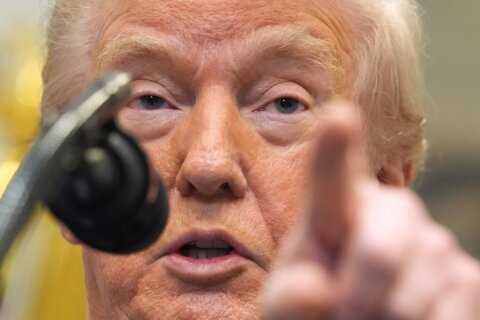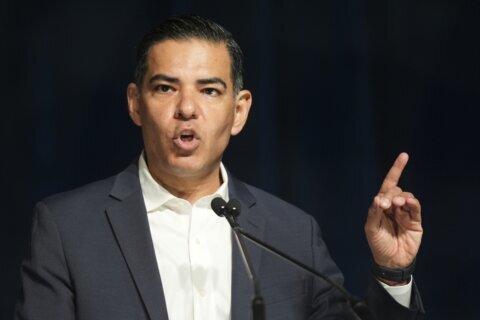For the first time, federal police officers will use body-worn cameras while serving search and arrest warrants, and while making arrests — but only while participating on task forces with local and state agencies.
In recent years, a growing number of local police agencies, including most in the D.C. region, have provided body-worn cameras to protect officers and the public in cases where use of force is possible.
The Justice Department announced Monday a pilot program that will allow federally deputized task force officers to wear the body cameras.
The pilot program goes into effect in select cities Nov. 1, the Justice Department said in a news release.
Involved federal agencies include the Bureau of Alcohol, Tobacco, Firearms and Explosives; the FBI; the Drug Enforcement Administration; and the U.S. Marshals Service.
Del. Eleanor Holmes Norton, D-D.C., and Rep. Don Beyer, D-Va., applauded the decision to initiate the pilot program.
Norton and Beyer had introduced a bill in July that would required uniformed officers to wear body cameras in the wake of the 2017 shooting of unarmed driver Bijan Ghaisar by the U.S. Park Police.
The Justice Department investigation into the shooting continues, while Ghaisar’s family has sued the government and the involved officers.
A second bill would prohibit federal police from refusing to work with local police agencies that require officers wear cameras.
“Body cameras have already definitively been shown to be effective for law enforcement and residents alike to increase transparency as well as trust in the police,” Norton said in a statement. “All the DOJ needs to do now is to go the full way (in requiring body cameras for all federal police agencies, including when not participating in a task force).”








